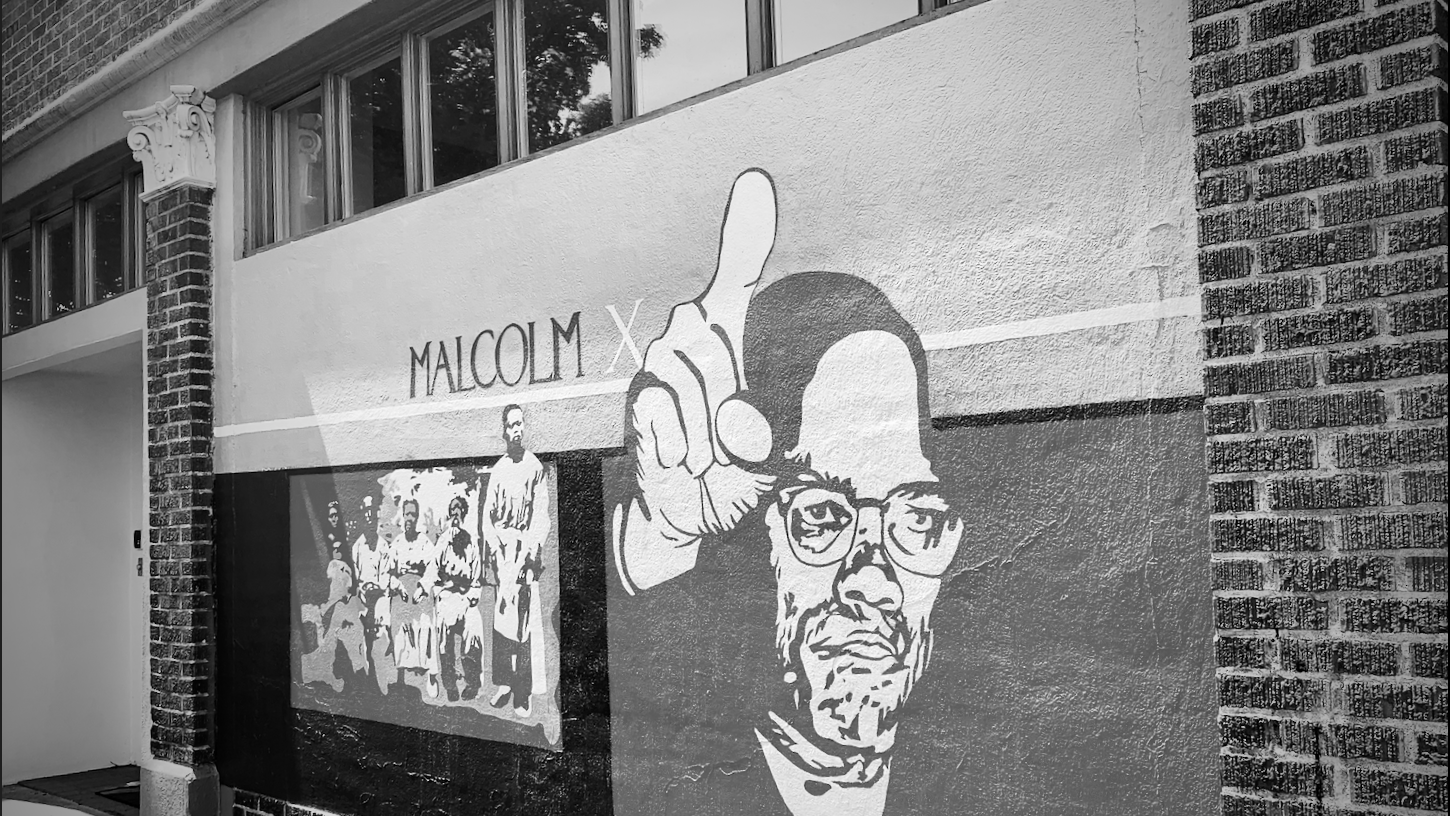Social Work Practice
Identity with the Profession of Social Work
My belief in social work, and desire to adhere to its ethos extends beyond personal life experiences and also stems from my values rooted in political ideology and social justice. Influenced by the political speeches and writings of the Honourable Jack Layton, Martin Luther King Jr., and Mohandas Karamchand Gandhi, I became interested in the interconnectedness of people, and the impacts oppression has on individuals, communities, and societies. My interest in structural social work, as influenced by the writings of Robert Mullaly and Colleen Lundy, stresses the significance of not only the person in their environment but also the significance of discourses in shaping society. As I began to explore the social sciences, I also discovered an interest in psychology. Influenced by Viktor Frankl, Gabor Maté, Carl Rodgers, Michael White, and Mischel Walter, it became clear to me that there were clear links between the personal and political. Social work is a profession that recognizes these links and seeks to integrate multiple disciplines to create change.
When I reflect on social work, I see a holistic examination of individuals on multiple dimensions (biopsychosocial-spiritual) and societies (ecological theory and systems theory). When looking at situations that arise for individuals & communities, the interdependence and opportunities for micro, meso, and macro growth attracted me to the practice of generalist social work. The multitude of ways to tackle social problems, and the diversity of thought within the profession, make the profession of social work unique and full of possibilities.
Reflecting on Generalist Practice
Generalist practice has been defined as a skill set that allows the social worker to implement the problem-solving process with individuals, families, groups, organizations, and communities (Zastrow, 2013, p. 8). Being influenced by anti-oppressive practice (the dedication to carrying out a practice which involves reflexivity in not perpetuating the sources of oppression), I find the openness of possibilities to problem-solving to be an exciting prospect in practice (Langer & Lietz, 2015, pp. 256-257). Furthermore, the generalist can conduct needs assessments, and evaluate the effectiveness of their interventions (Zastrow, 2013, p. 8). The collection of data is not only important for evidence-based practice, but it promotes creativity while establishing legitimacy to creative elements within a practice. Another component of social work practice I value is the diversity of prospective clients (as individuals, families, groups, organizations, and communities can all be clients).
One of the components I embrace and appreciate within social work is the ecological theory. The recognition of interconnectedness fits well with my personal values. When reviewing and examining the ecosystems framework, I find it essential to recognize the existence of two separate entities – the individual & the environment (Sheafor & Horejsi, 2015, p. 8). Their interactions produce outcomes that the dominant culture deems as desirable or undesirable (Chappell, 2014, p. 32). What is important to understand is that when examining social problems that arise, it is an incompatibility between these two components that have led to an outcome that the dominant discourse has deemed undesirable. Drawing from Michael Focault, Michael White’s approach in narrative practice – which gives the client autonomy in selecting a discourse to filter their life story – is a fitting piece within structural approaches by challenging the maintenance and reproduction of injust discourses (White, 2007; Mullaly & West, 2018).

Social work critically reflects on these incompatibilities in its professional mandate. The Canadian Association of Social Work, for example, recognizes under its second value the “pursuit of social justice” (Canadian Association of Social Workers, 2005, p.5). The important role that social justice has in society is a mandate that specifically seeks to enhance the standing of those who are disadvantaged. By promoting “social fairness and the equitable distribution of resources,” and “act[ing] to reduce barriers and expand choice for all persons,” the social worker acts in a capacity in which they thereby represent and advocate for the oppressed, disillusioned and disenfranchised (p. 5). Whether one looks at the days of satyagraha, carried out by Gandhi in South Africa and India (Gandhi & Kumarappa, 1961), or the March on Washington of Martin Luther King Jr. (King, 2001), it does not take much imagination to see how two of my guiding heroes actions parallel a core value of social work. Furthermore, the use and promotion of non-violent resistance in both instances further parallel the second value of social work by affording the general public protection from harm.

New Perspectives in the Learning Journey
When looking at social (in)justice and Social Work from a Canadian context, several cohorts have experienced alienation, assimilation, and marginalization that is similar to other colonized lands (Coats, Gray, & Yellowbird, 2004). The First Nations, Métis, and Inuit populations have traditionally experienced and depth and breadth of cultural genocide and assimilation that are only in the early stages of being recognized (Sinclair, Hart, & Bruyere, 2009). Being mindful of the history and role of social workers in this historical injustice has led to a personal deep reflection of my role in social work practice.
One of the most instrumental pieces of learning from indigenous social work practice has been the concepts of cognitive imperialism and the need for culturally relevant practice (Hart, Sinclair, & Bruyere, 2010, p. 48). Cognitive imperialism puts a premium on the colonizer’s cultural meaning system(s), perpetuating political structures, economic systems, legal systems, societal norms, and ideas on illness & healing (Castillo, 1997, p. 20). Challenging cognitive imperialism and honoring multiple ways of knowing (such as various Indigenous ways of knowing and Euro-western) adheres to the spirit of social work practice through social work values such as the “Inherent dignity and worth of persons” through respect for unique beliefs (Canadian Association of Social Workers, 2005, p. 4), and “competence in professional practice” by integrating innovative and effective strategies that provide due care for the interests and worldviews of clients (p. 8).
Social location is an essential consideration for indigenous practice. While we continue our journey in life learning, it becomes important to recognize whether we have the legitimate knowledge and ability to carry out authentic indigenous practice for the promotion of wellbeing within both indigenous and nonindigenous contexts of wellbeing. There are multiple ways of looking at this issue, and I believe that in practice this largely depends on the identity of the client and policies and also the laws, policies, and procedures that the profession becomes bound to. Appropriation of indigenous practice by those without the knowledge or legitimacy to provide services can homogenize indigenous culture and undermine social work values of respect and competence (Coats, Gray, & Yellowbird, 2004, pp. 53-54; Hart, Sinclair, & Bruyere, 2009, pp. 27-28; Canadian Association of Social Workers, 2005). Given my own social location of eastern European heritage, acting as an ally in achieving the self-determined goals of indigenous communities becomes all the more important (as opposed to historical paternalism).

The concept of post-modernism is an essential contribution to my practice perspective. Post-modernism in practice challenges the worker to critically examine if they are actively seeking to better the individual in ways relevant to their own measures of wellbeing or trying to fit the individual into the dominant intellectual and/or colonial systems/paradigms (Castillo, 1997, p. 45). If we continue to critically examine our practice, and reflect on if our actions are relevant to enhancing the individual in context with their culture, we are able to carry out reflexivity in practice (Heinonen & Spearman, 2010, p. 140). Furthermore, as we build an understanding and bridge between different paradigms, we are able to contribute to the community of learners in social work through educating and advocating our peers to look at theories and perspectives that are alternatives to the dominant discourse, with the aim of enhancing our professions respect for diversity.
Being mindful of and actively learning/reviewing the history of social work practice is important so that we do not repeat the profession’s transgressions of the past. Societies are constantly changing, and the perspectives that guide practice are in a state of continual growth and refinement to match the needs of populations and society at a given point in time. The adaptative nature of social work means that there is a need for life learning (Alberta College of Social Workers, n.d., p.1). In a community as diverse as social work, one of our commonalities in practice is the continuation of learning after completing formal education. To embrace this, we need to wholeheartedly come together to build and exchange an ever-expanding knowledge-base comprised of multiple models, theories, and perspectives. Reflecting back on creativity, evaluation, and legitimacy, our community as benefits benefit from the organic development of theories and methods transmitted through our learning community.
References
Alberta College of Social Workers. (n.d.). Continuing competence program member handbook. Retrieved from https://acsw.in1touch.org/document/1949/CCP%20Member%20Handbook.pdf
Canadian Association of Social Workers. (2005). Code of ethics. Retrieved from https://www.casw-acts.ca/sites/default/files/attachements/casw_code_of_ethics_0.pdf
Castillo, R. J. (1997). Culture & mental illness: A client-centered approach. Pacific Grove, CA: Brooks/Cole.
Chappell, R. (2014). Social welfare in Canadian society (5th ed.). Toronto, Ontario: Nelson Education.
Coates, J., Gray, M., & Yellowbird, M. (2010). Indigenous Social Work around the World Towards Culturally Relevant Education and Practice. Surrey, England: Ashgate Publishing Limited.
Gandhi, M. K., & Kumarappa, B. (1961). Non-violent Resistance: Satyagraha. New York, NY: Schocken Books
Hart, M., Sinclair, R., & Bruyere, G. (2009). Wícihitowin: Aboriginal social work in Canada. Halifax: Fernwood Pub.
King, M. L. (2001). The autobiography of Martin Luther King, Jr. (C. Carson, Ed.). New York: IPM in association with Warner Books.
Langer, C. L., & Lietz, C. A. (2015). Applying theory to generalist social work practice: A case study approach. Hoboken: Wiley.
Mullaly, B., & West, J. (2018). Challenging oppression and confronting privilege: A critical approach to anti-oppressive and anti-privilege theory and practice (3rd ed.). Don Mills, ON: Oxford University Press
Sheafor, B. W., & Horejsi, C. R. (2015). Techniques and guidelines for social work practice (10th ed.). Upper Saddle River, NJ: Pearson.
Zastrow, C. (2013). The practice of social work: A comprehensive worktext (10th ed.). Belmont, CA: Brooks/Cole, Cengage Learning.
